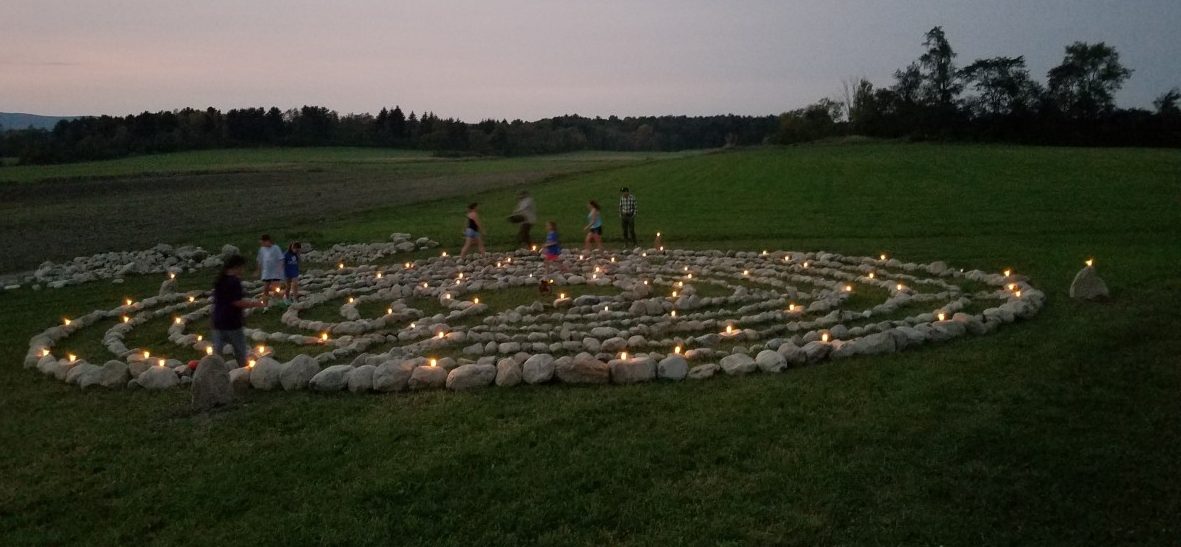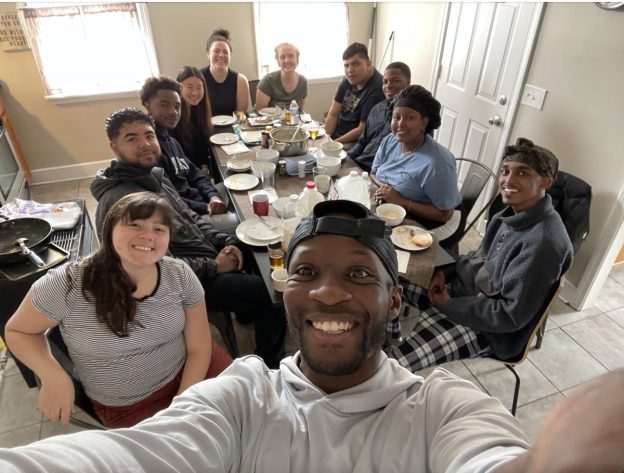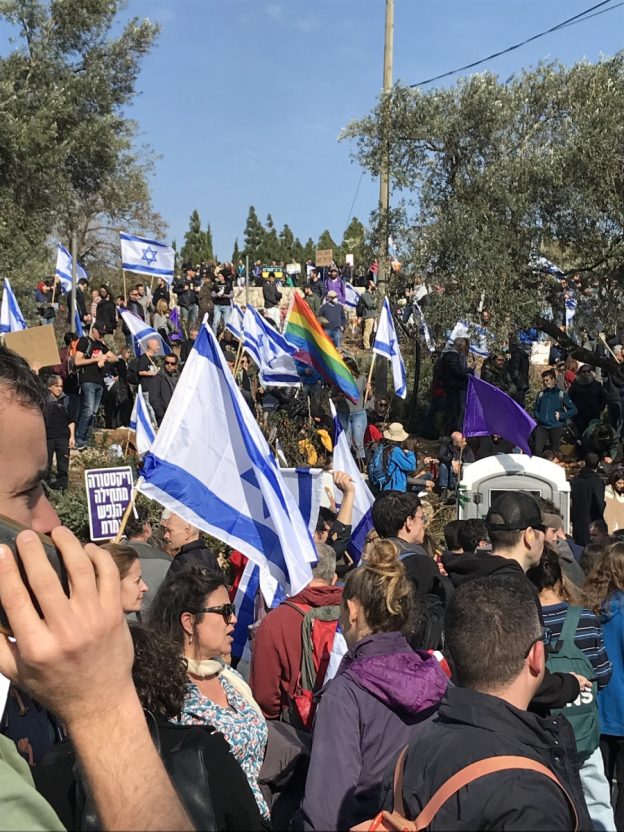Fifteen minutes. It’s the briefest time of quiet, and it is being held for everyone at Midd (faculty, staff and students) every weekday morning from 8:30-8:45 a.m. in the Crest Room in McCullough. Five members of our community, faculty and staff, take turns hosting this quiet, out-of-the way, circle of silence. No experience is necessary. No performance is required. No grade or credit is given. Just arrive, sit, and get on with your day.
In a culture that constantly encourages, and often demands, that we keep doing more, the immeasurable value of pausing is often ignored. Here, the five hosts of Weekday Morning Sitting Meditation share personal reasons for setting aside time to slow down:
Leila McVeigh (Bio)
The role of mindfulness in my life is multilayered. In day-to-day living, mindful practices support my nervous system and a healthier relationship with reality, both inside and out. I can observe the space between what I expect of myself and how I actually am, then work on acceptance and compassion. Thinking about world problems can leave me tied up in knots if I’m not watching myself. Coming back to the present gives me a more manageable amount of reality to face. I can choose the next right thing to do, instead of getting overwhelmed from trying to do “all the things.” Meditating in community on campus gives me a little infusion of calm and hope that often lingers through the day.
Danielle Stillman (Bio)
Before I became deeply involved in the Jewish spiritual path, I was deeply involved in the Buddhist path. Mindfulness meditation is a practice that helps me be more present to joy and pain in myself and the world, and because of this to be more compassionate with myself and others. The intentional noticing of what is informs my next steps and contributes to what can be. Although I no longer consider myself to be a practicing Buddhist in a ritual sense, I continue to practice mindfulness meditation which I find completely compatible with my Jewish practice, and sometimes even stems from it. Despite all this, sticking to a daily practice is hard, and meditating with others is a powerful incentive to show up. The calm energy we create together, even in just 15 minutes, is palpable and reminds me to keep practicing.
Sophia Calvi (Bio)
As a student at Middlebury 20 years ago, I began to practice sitting meditation on the regular. I found that taking the time to sit and focus on my breath, allowed me to deepen my awareness of self and taught me how to return to the present when my mind was jumping all over the place. It also supported my nervous systems through the ups and downs of life. 20 years later, I have dedicated my life to sustainability, dreaming into being holistic futures. We humans are organisms in our extended body the earth. We are all interconnected and interdependent. Mindfulness practices in group settings have deepened my soul’s knowing of our web of life. I believe we all have access to the magic that connects us. That’s why I show up to breathe together. To remember.
Emily Proctor (Bio)
I meditate because it helps me throughout the day to stay calm and centered. I find that on days when I sit, I am more likely to listen and respond in grounded ways to the experiences, positive and negative, of my life. This in turn helps me feel more connected to the people around me, which makes me happy. I also sit because I think it feels good. I like the feel of my breath, and I like listening to the sounds around me. When I sit with a group, I like the feeling of simply being in the presence of other people. So, it recharges me to sit still and enjoy these things for a bit. I believe that even one person sitting quietly can make a big difference for the group as a whole.
Mark R. Orten (Bio)
My formative childhood years in Appalachia within a conservative Christian tradition taught me to value contemplative rites such as prayer and fasting and singing, although not known as such to me until later. Growing up in the Blue Ridge Mountains, my faith commitments within a small religious community were also infused with a love and a reverence for nature. As I matured and was exposed to the wealth of contemplative practices in other traditions, I found a syncretic home in yoga and meditation and mindfulness. Pausing from all the freneticism of life and opening my awareness to what truly is there, within and around us, in every moment– quite apart from our doing— is life-affirming. Doing it with others who are on their own paths is an additional wonderful gift.
Many reasons exist to enter mindful practice, including obtaining a sense of calm, connection, and awareness. We all come to the circle with different hopes or intentions, and in community, all experience the benefit of meditating. You are warmly invited!


